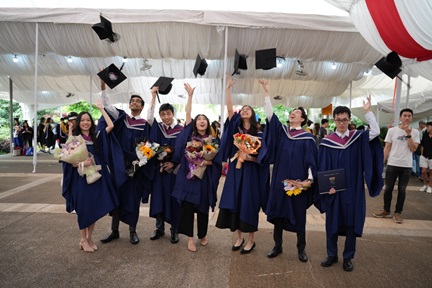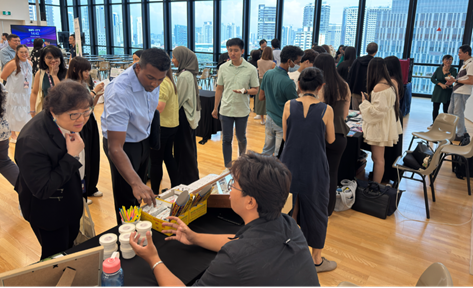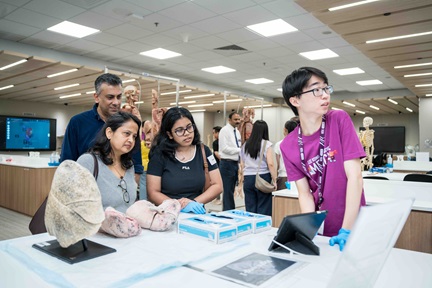Big plans for a greener campus
Nanyang Technological University (NTU) is going green in a big way starting with a bold move to ban the provision of free plastic bags by the vendors on campus from October this year. An initiative like this alone will save close to a whopping 10 million plastic bags in a single year, drastically reducing plastic use university-wide. Warmly welcomed by NTU students, this move is just one of the many initiatives that NTU is embarking on to become a greener, “zero-waste” campus.
5cf79d2e-ea16-49fa-9a8c-2093b72f0950.jpg?Status=Master&sfvrsn=908ac700_3)
Tenants at NTU are showing their support, with shops such as 7-Eleven, The Coffee Bean & Tea Leaf and Prime Supermarket joining in the no-to-plastic-bags initiative. Other highly frequented tenants such as McDonald’s within NTU have implemented measures such as providing biodegradable paper bags and other sustainable alternatives. While this move may seem drastic to some, it is in fact a progressive one. Faculty and students can still purchase plastic bags at 20 cents each; proceeds will go to NTU’s assistance fund to aid students in need.
While the goal to becoming an eco-friendly campus is a continuous journey, the University is already well on track to achieving targets, with over 95 per cent of her buildings now Green Mark Platinum-certified by Singapore’s Building and Construction Authority (BCA). The Green Mark Platinum certification is awarded to buildings which have low environmental impact and promote sustainability in its design, construction and operations. NTU is aiming to be 100 per cent certified in two years’ time.
Another exciting installation to look forward to is Asia’s largest wooden building – a six-storey $180 million energy-efficient building which will be home primarily to the Nanyang Business School, as announced by NTU President Professor Subra Suresh at a recent University Town Hall. Spanning 40,000 gross sq m, the building with much collaborative space for inter-School interaction, will be constructed using low-polluting methods and resources, including mass-engineered timber and materials procured from renewable forests.
"Bringing together our approaches to innovation and sustainability, the new academic building will exemplify our distinctive NTU Smart Campus and show that we 'walk the talk' of our commitment to sustainability," said Prof Suresh of the building, which will be completed in 2021.
Spread over 200 ha of land, the university has also set goals to reduce operational consumption of energy, water and waste by 35 per cent, by 2020. Making use of the sunshine that the campus gets year-round, NTU also aims to double the harnessing of solar energy, powering it to 9.9 megawatts by next year, which can supply 7-10 per cent of the university’s electricity needs.







